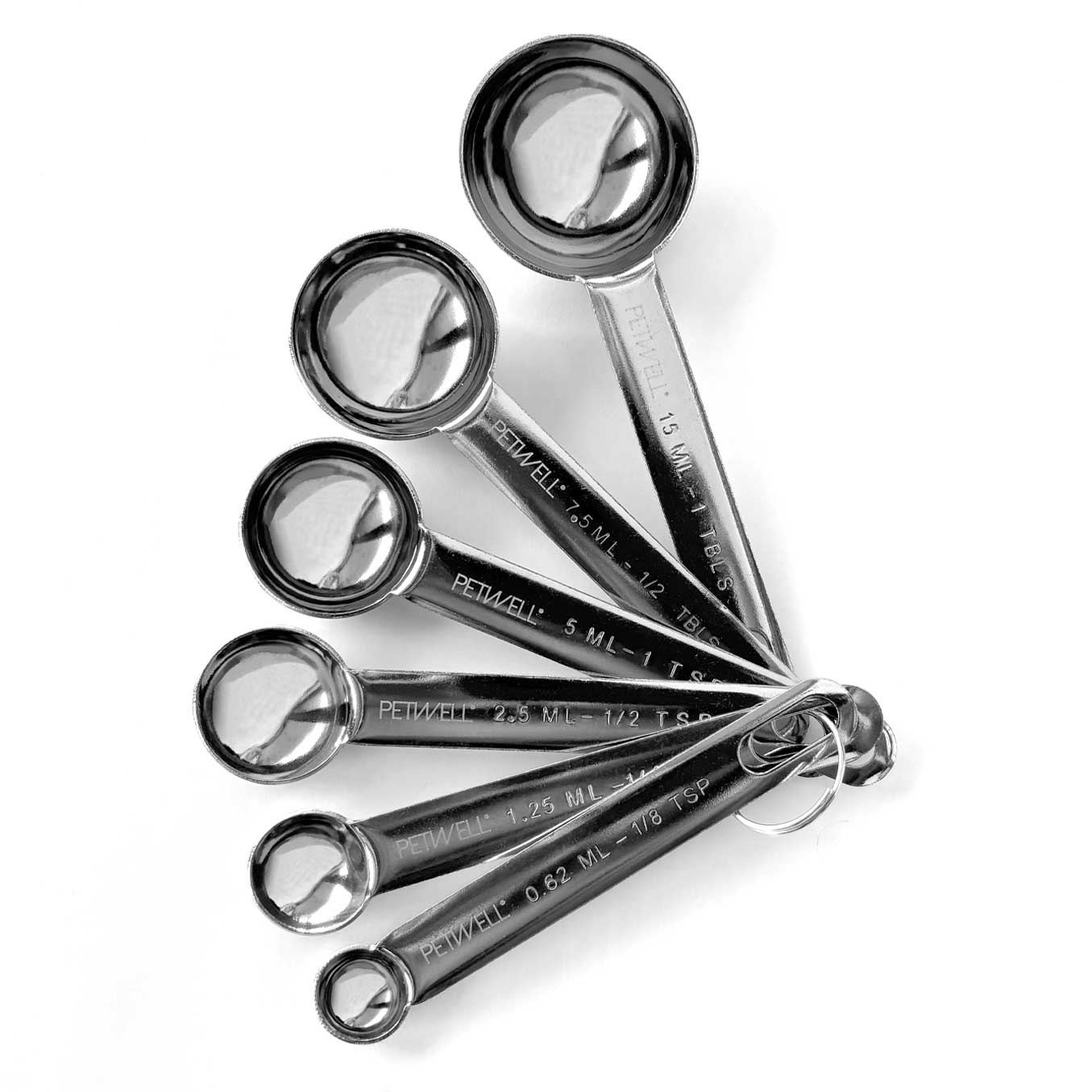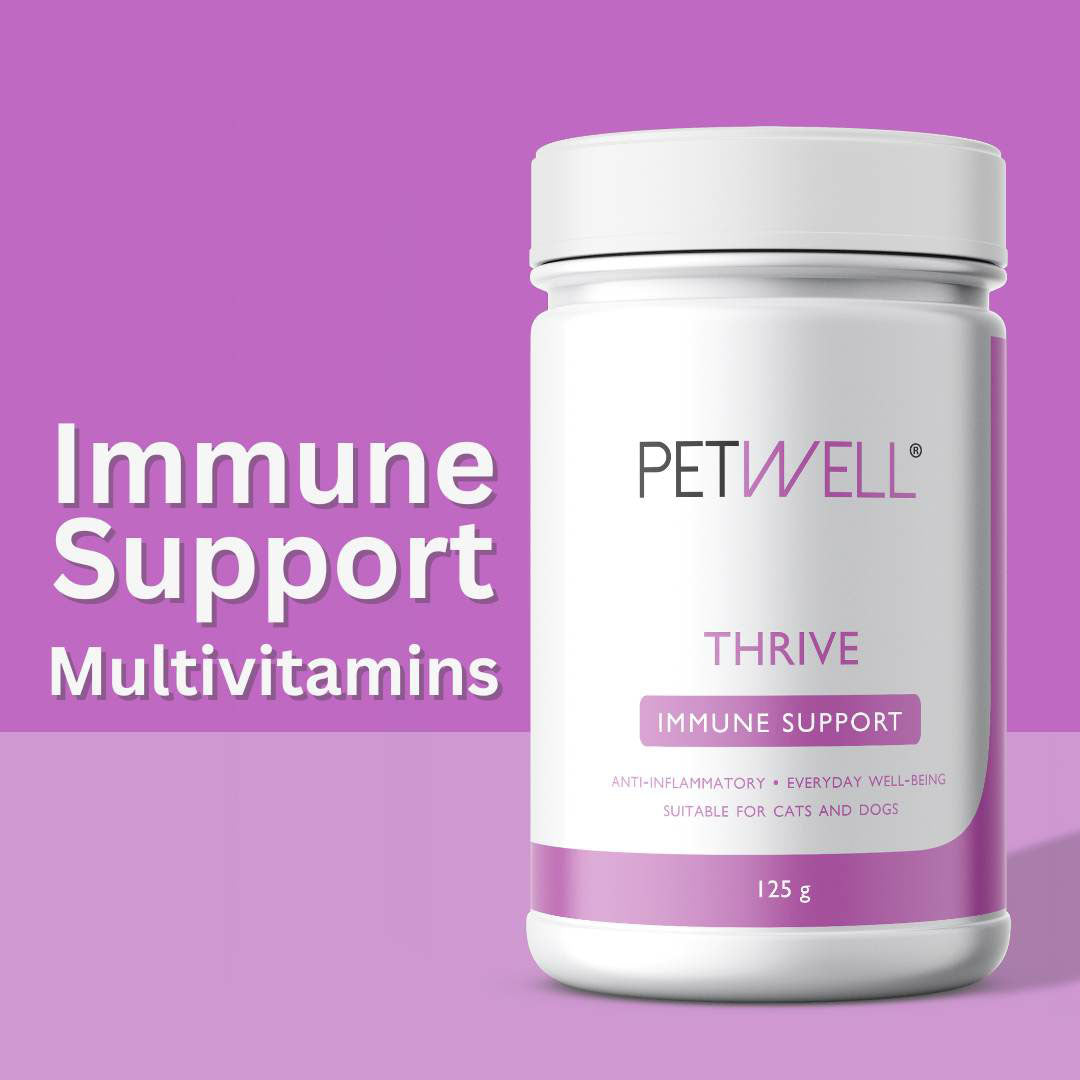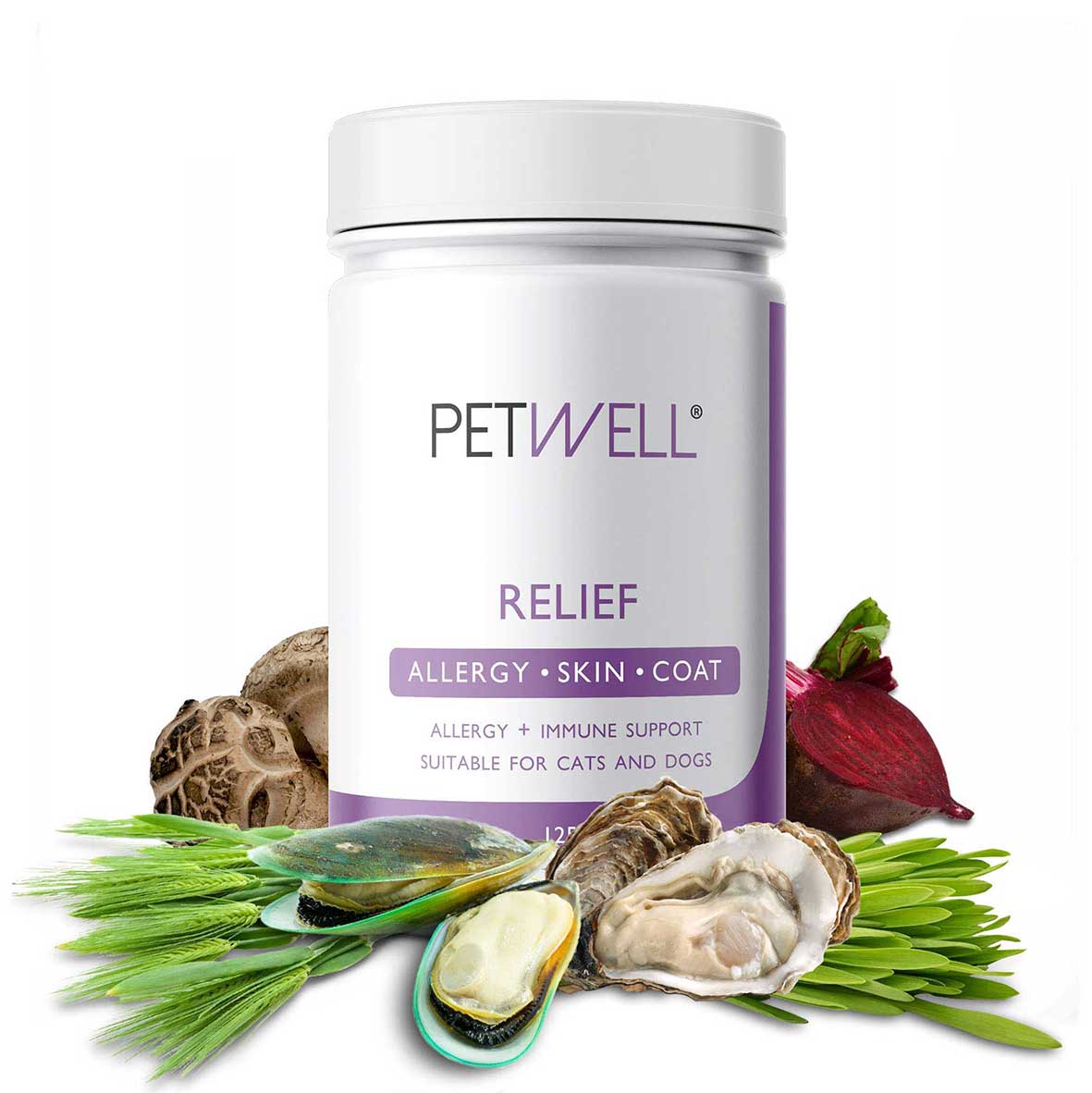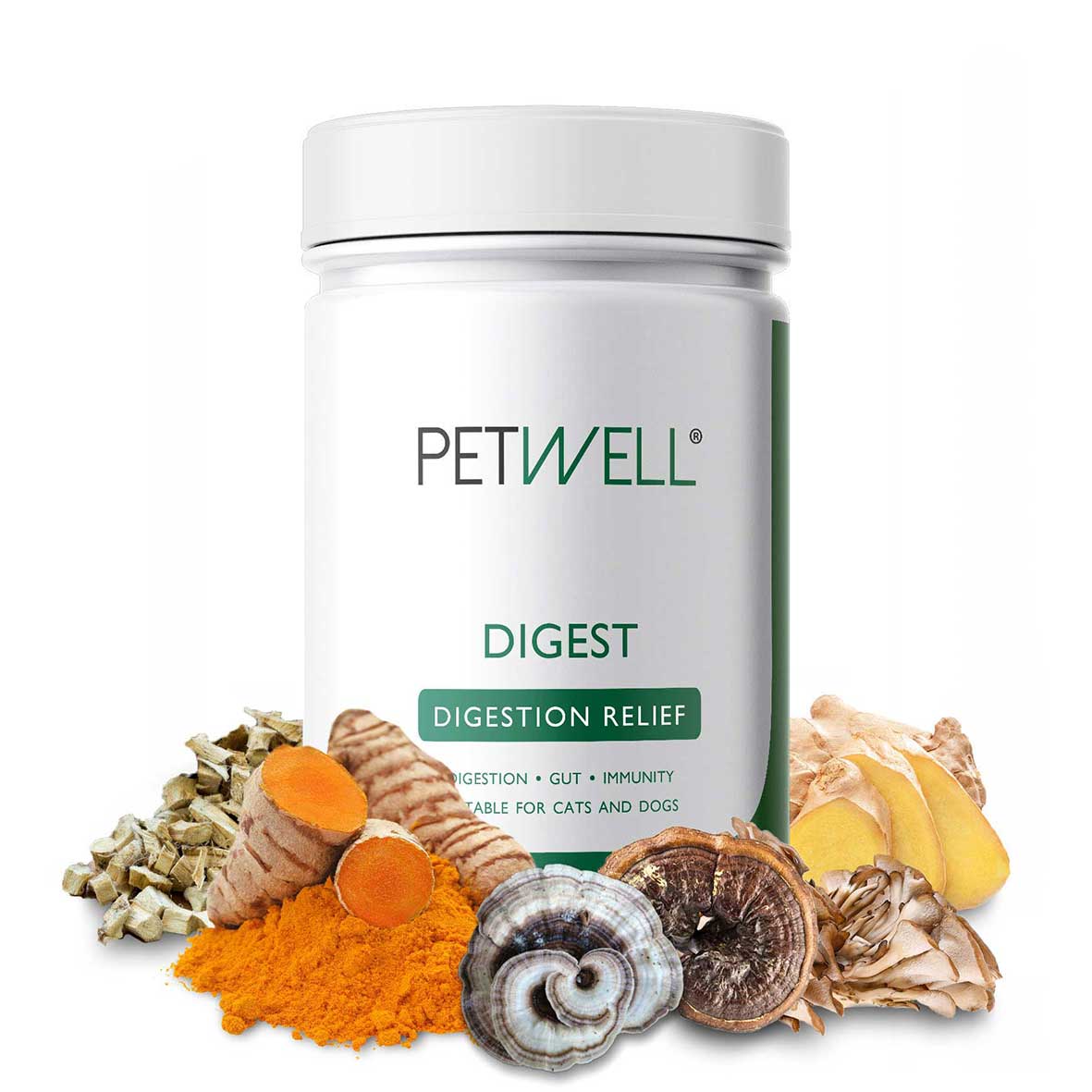Can dogs eat raspberries? Many pet owners are curious about adding fruits to their pet's diet.
Here, we will explore the question, "Can dogs eat raspberries?" and provide you with valuable information about their safety, benefits, and recommended feeding guidelines. So, let's dive in!
Are Raspberries Safe for Dogs?
The good news is that raspberries are safe for both dogs and cats to consume in moderation. They are packed with essential nutrients and offer a range of health benefits. However, there are a few things to keep in mind before introducing raspberries into your dog's diet.
One of the easiest ways to include raspberries in your pet's diet is by using an all-natural supplement specifically formulated for dogs. PetWell supplements are designed to provide the benefits of raspberries in a convenient way and in the correct amount.
If your pet is suffering with stress and anxiety, try PetWell CALM Anxiety Aid, that contains raspberries along with other calming and restorative ingredients.
Health Benefits of Raspberries for Dogs:
- Immune Health: Açai berries can help boost immune health due to their high concentration of antioxidants, such as vitamin C and anthocyanins. These antioxidants help neutralise harmful free radicals in the body, reducing oxidative stress and supporting a strong immune system. Açai berries also contain essential nutrients like vitamins, minerals, and fatty acids, which further contribute to overall immune health.
- Vitamins and Minerals: Raspberries are rich in various vitamins and minerals, including vitamin C, vitamin K, manganese, and fibre. These nutrients contribute to your dog's overall well-being, supporting their immune system, bone health, and digestion.
- Antioxidant Powerhouse: Raspberries are packed with antioxidants that help combat harmful free radicals and reduce the risk of chronic diseases, such as cancer and heart disease. The antioxidants in raspberries can also support your dog's cognitive function and promote healthy ageing.
- Natural Calming Effects: Raspberries contain a natural compound called ellagic acid, which has been suggested to have calming properties. While raspberries may not act as a primary solution for anxiety or stress in dogs, including them in a balanced diet may have a positive impact on their overall well-being.
In Summary
Raspberries can be a healthy addition to your cat and dog's diet when offered in moderation and prepared properly. These tasty berries provide essential vitamins, minerals, and antioxidants that support your pets's overall health. Remember to introduce them gradually, and if you notice any adverse reactions, consult your veterinarian.
So, next time you enjoy some delicious raspberries, feel free to share a few with your fur family knowing you are providing them with a nutritious and safe treat.
The Science behind it
Don’t just take our word for it, here are some evidence-based studies for you to review.
Disclaimer: The entire contents of this email and website are not to be taken as medical advice. The team at Pet Squad Pty Ltd trading as PetWell encourages you to make your own pet healthcare decisions based on your research and in partnership with a qualified pet healthcare professional.























